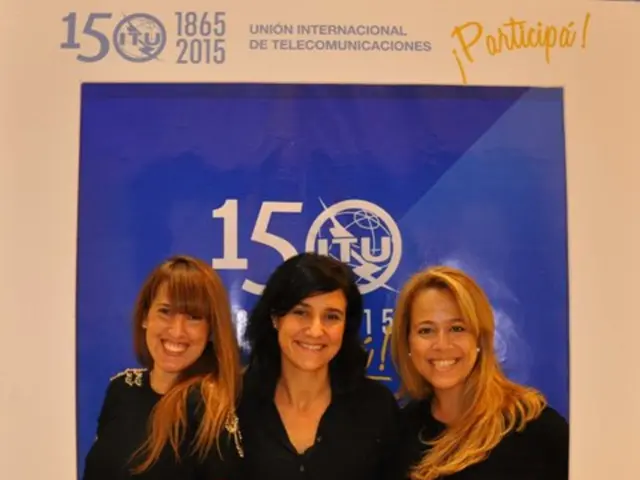Bucharest Tech Conference 2025 - Day of Events. Focus on Artificial Intelligence, Intent, and Crafting the Future of Technology in Romania
Voxxed Days Bucharest 2025 winds up its 2025 edition on March 27th, after two days of bustling workshops and conferences.
"It's a bloody miracle we managed to gather 300 developers and tech team leaders again this year for this developer-focused conference. It was a bigger hassle than ever, given the crazy market conditions, but hell, we're optimistic that our initiative helped those tech folks reconnect with the power of community." - Andra Ghibuțiu, Co-founder and CEO.
Day one, the 26th of March, was all about jumping deep into real-world case studies and applied examples, offering attendees some hands-on experience and advanced knowledge.
"More and more developers are beginning to realize the value of investing in their most important asset—their education. We're all about supporting them on this journey from engineering minds to true product minds." - Alex Proca, Co-founder and CTO.
On day two, the 27th of March, essential conversations took center stage — discussions about access to capital, talent retention, integrating AI, opportunities for the younger generation shaping Romania's resilient and globally competitive tech ecosystem, and the role of communities.
The first panel dived into the current state and future of Romania's tech industry, underlining its vital role in the national economy, contributing 8% to GDP. Edward Crețescu (President @ANIS) moderated the discussion, stating that "Without IT, Romania would've already been in a recession." Despite the abrupt removal of tax incentives, Romania remains a valuable tech hub, thanks to its high concentration of skilled engineers and strong international reputation. Panelists emphasized the urgent need to shift from an execution-based model to product innovation, supported by accelerators, educational programs, and increasing access to early-stage capital.
The conversation also delved into the importance of equity awareness, purpose-driven retention strategies for senior talent, and Romania's opportunity to build core AI-first companies, despite missing out on EU-supported AI factories. The consensus? Now's the best damn time to build in Romania with a fearless vision, local ownership, and smart, ethical integration of AI.
Check out the full talk below:
Tax Incentives, Access to Capital, and the Ecosystem's State
Mădălina Popa (Regional Sales Solutions Manager Microsoft Romania) underlined Romania's continued standing within the Microsoft ecosystem, despite the cancellation of tax incentives. The local expertise is still highly respected, and customers frequently ask for Romanian engineers when raising support tickets.
Alex Lăpușan (CEO & Co-founder @ZITEC) argued that the end of tax incentives wasn't the main problem; it was time to operate in a market without fiscal exceptions. The real issue, he said, was the abrupt and insane way changes were implemented overnight. The business challenges of 2024 left a mark, but he noted that R&D incentives might be a potential lever to stimulate domestic tech production.
Marius Istrate (Chairman of the Board @TechAngels Romania) emphasized Romania's competitive advantage — the highest density of engineers in Europe. With accelerators, tech hubs, and educational programs, there's significant potential to cultivate more local business founders. There are roughly 3 or 4 venture capital firms in Romania, collectively armed with €200 million over the next five years. But Romania remains attractive to foreign investors. At Tech Angels, applicant volume (250 per year) is just 40% of what's being created locally. Romania needs 3,000-4,000 applications per year to produce more product companies that can make a real impact on GDP and unlock long-term value creation.
Empowering the Next Generation of Tech Professionals
Microsoft Romania unveiled dedicated training programs for students, graduate students, and even engaged them in pro bono CSR projects. Project Europe, a €10 million early-stage fund launched in March 2025, also supports young European entrepreneurs aged 18-25 developing tech-enabled startups.
According to Alex Lăpușan (ZITEC), as companies become more goal-oriented, this naturally drives higher quality among experts. "We need a balance of risk—not just on the side of companies. Big paychecks should no longer be the norm; young professionals today care more about impact than billable hours." He mentioned various opportunities for young developers to work on ideas and projects through NGOs, programs, and accelerators. "We have the talent—but they need better tools to tackle the market. I'm confident the new generation will be just fine."
Retaining Senior Talent
Microsoft shared a story about one of their top data scientists, constantly recruited by competitors, yet staying put. "Yes, he got promoted and stock options, but the big deal is that he feels connected to the community and wants to give back. He even took part in a pro bono CSR project. We don't talk much about personal values with our people—we just assume they come for the cash and equity. That needs to change."
Marius Istrate suggested "asking about equity when you're hired." Salaries aren't the only motivators anymore. The way a company defines its ambitions determines whether people stick around or walk away.
Alex Lăpușan noted that those driven purely by cash will head to the highest-paying companies—and that's cool. "But for long-term retention, the key is to attract those driven by purpose."
Romania's AI Integration
Microsoft addressed critics who accuse them of contributing to societal decline because they create AI tools that "dumb down" humans. The response was straightforward: "The first responsibility lies with the individual. You must know AI before you can use it ethically."
Addressing the scarcity of Romanian AI factories supported by the EU, Marius Istrate claimed that having an AI factory doesn't matter. "Capital chases outstanding teams solving significant problems. Romania has no legacy in AI—and that's an advantage. Everything's still possible, both at the private and government levels. There's never been a better time to build an AI company in Romania."
The second panel of Voxxed Days Bucharest 2025 showcased speakers reflecting on Romania's journey from a traditional outsourcing hub to a product-driven tech ecosystem, moderated by Alexandru Agatinei (CEO @How to Web). Highlights included the country's strengths—resilience, adaptability, strong technical talent, and rapid adoption of innovation—and strategies for continued growth in the local tech landscape.
*This is Partner Content.
- Andra Ghibuțiu's optimism towards the conference, fueled by the unstoppable support from developers and tech team leaders, is a testament to the general news that Voxxed Days Bucharest continues to be a significant event in the developer-focused industry.
- Education and self-development were key topics on day one, with Alex Proca emphasizing the growing importance of investing in the education of developers, aiming to transform them from engineering minds into true product minds.
- On day two, panel discussions revolved around the financial aspects of the tech industry, including access to capital, talent retention, and the role of communities. These essential conversations underscored the financial business of technology as it navigates the traditional industry.
- The tech industry's future was also discussed, with panelists pushing for a shift from an execution-based model to product innovation, supported by various programs, accelerators, and financing opportunities. This underscores the dynamic nature of technology as it continually evolves and influences the general news landscape.
- The subsequent panel delved into Romania's position within the global AI landscape, with experts emphasizing the country's potential to build core AI-first companies. This discussion highlights the intersection of technology and education, as Romania positions itself as a competitive player in the AI field, driving growth in the education and self-development sector.





